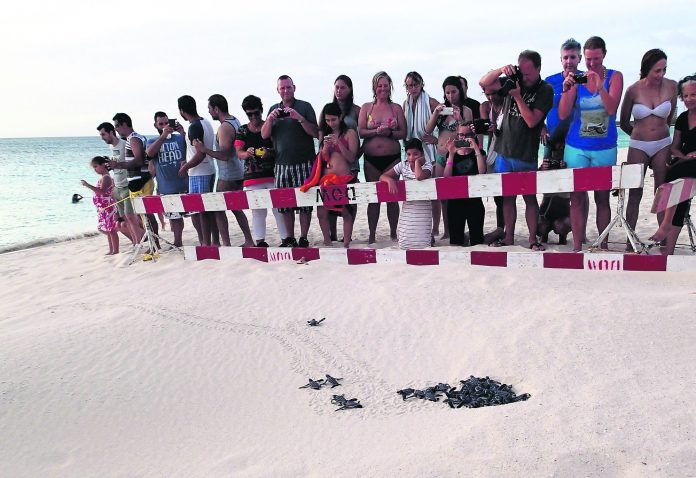The nesting season of the Leatherback or “Driekel” Turtle, the largest of the seven species of marine turtles in the world, is set to commence early in the Caribbean this year. Already in America, they have started making their nests and laying eggs; however, this also heavily depends on human behavior.
As is known, several species of marine turtles come to Aruba to lay their eggs. They come during specific seasons, always starting after carnival from March to July. The first to arrive is the Leatherback Sea Turtle, known in Aruba as “Driekel,” and later, the Hawksbill Turtle, which can nest until November.
Turtles have been internationally protected since 1990, based on the Cartagena Convention, an international treaty that protects marine life, particularly migratory species (species that move from one country to another).
The greatest dangers to turtles are the developed coastlines because turtles are attracted to artificial light at night. They are animals that come to lay their eggs at night and prefer a dark beach. This becomes a problem that gets increasingly difficult to address every year, not only in Aruba but worldwide.
Another danger turtles face is from boats and jet skis in the sea. Turtles need to surface to breathe, and during these moments, many of them die due to jet skis and boats passing by without noticing there are turtles nearby.
The nesting season for turtles is from March to July. Female turtles come ashore and look for the most suitable place to lay their eggs. It is crucial for people to know that during this phase, they should not disturb the turtles because they might return to the water without laying their eggs.
The ongoing coastal development due to construction companies is also a danger to turtles because they build hotels or condos with lights on the beach.
Therefore, if you happen to see a turtle near the beach at night, it’s important not to shine lights on them, not to take flash photos, and to contact the relevant authorities, in this case, TurtugAruba.




















